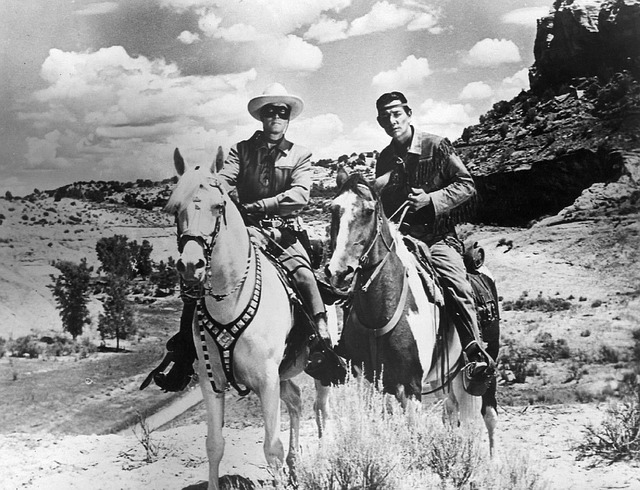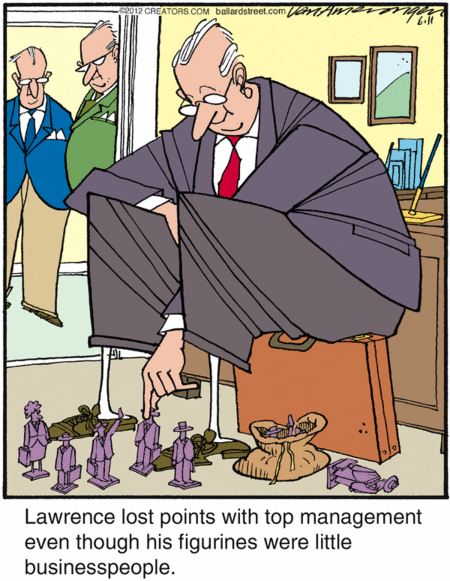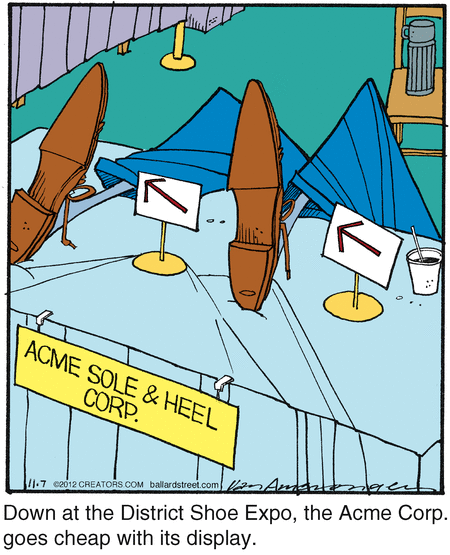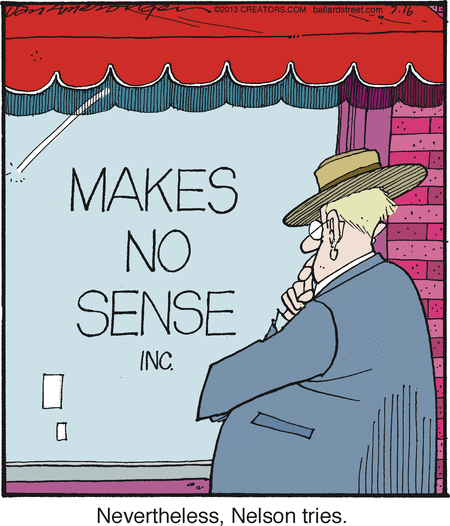239 Strategic Partnerships: The Key To Effective Business Development
Podcast: Play in new window | Download ()
Subscribe: Apple Podcasts | Spotify | RSS | More

A local dentist advertises for a marketing person who will develop “referral partners.” Financial planners, attorneys, chiropractors and many other service professionals do the same thing. They chase referral partners.
Many geographically dependent businesses think it’s an effective way to build business. Connect with another business, let them know what you do, then ask them, “If you run across anybody who needs what I do, please tell them about me.”
It’s a weak strategy. Worse than that, it’s lame.
Why would I send you business just because you’ve introduced yourself and told me what you do? Why would I even remember you?
I’m busy doing my own thing. I’ve got my own clients to serve. And my own prospects to chase. I’m hustling my own business. I’m not gonna hustle yours.
I encounter people all the time who have no clue what business development really is. They confuse marketing and advertising with biz dev. Others confuse it with sales. Truth is biz dev is all of those things, but none of those things.
Business development is mutually beneficial.
But that’s not the whole of it. I could argue that if I pay a finder’s fee – in some businesses it’s perfectly legal and ethical (in others, it’s neither) – then it’s mutually beneficial. And it is. But it’s not biz dev.
Some business people are so intense in their hustling that they fearlessly approach anybody and everybody to hawk their products or services. Maybe that’s a smart thing to do, but handing out business cards to everybody at a local MeetUp isn’t strategic enough to be biz dev. Many will find it annoying. Nothing more.
Business development is a phrase that’s no more than 20 years old. Yet you’d think it would be better understand after 2 decades. Not so much.
Digital agencies claim to provide it as a service. Traditional agencies do, too.
Even managers who sometimes wear the title, “Business Development Manager,” don’t fully know what they’re supposed to be doing. They go on sales calls. They take important clients to lunch. They play in charity golf tournaments.
Again, these may all be worthwhile activities. I just don’t consider them the primary activities of business development.
So what are the main components of business development? What should a biz dev manager be doing?
First of all, the Internet has changed everything, including biz dev. One word you may hear in biz dev conversations is the word “promote.” The world has never seen a promotional tool as effective (and as universal) as the Internet. Affiliate marketing is a central activity of online promotion. Lots of people promote the products and services of others because they earn a hefty commission. Sharp car salespeople have used finder’s fees for decades, paying people cash money if they send them a customer who ends up buying a car. There’s nothing new about affiliate marketing. It’s just gone by other names for years.
Yes, we all want people willing to promote us. It’s an outcome every biz dev professional wants. While business development could include things like affiliate marketing, that’s not really the thrust of it.
Can you find strategic partners? Companies, businesses, organizations and people who can benefit when they promote your business? Not because you’re paying them. Not because they’re outsourced commission salespeople. Because when they promote you it affords them an opportunity for business they might not otherwise be able to land.
I once had a client who created terrific tracking software. From enterprise applications to more plug-in type of installations, this company specialized in solving simple or complex tracking challenges. Enter the biz dev mindset.
Who else might benefit from promoting this software? And how might it help the company promoting tracking software they didn’t create or sell?
Enter a product that was an ideal fit: bar-code guns. Those hand held devices that are used in countless applications to track all sorts of things.
Well, those guns have software. Indeed they do, but not all the software on them will solve every tracking problem. What do you do if you sell bar-code guns and the software that comes on them, but your prospect has a special application that the software won’t handle? You lose the sale. You have nothing to offer. It’s a problem you can’t solve.
Wait a minute. Yes, you can. Enter my client’s software. With a staff of custom programmers he could build a system to track specifically whatever was needed. He didn’t offer an “out of the box” solution where one-size-fits-all. He could make just what you needed.
He didn’t sell bar-code guns. He was a software guy.
Software guy meet bar-code gun guy. I think you guys can help each other.
The bar-code guy has his own stuff to sell. If his solutions would fit the prospect, no problem. He sold them. Or tried to.
But if his prospect needed bar-code guns with a funky solution that he didn’t sell…well, now he had a solution. And this solution afforded him an opportunity to make a sale he’d otherwise lose. Better yet, it often gave him the chance to sell a quantity of guns that he would never be able to sell because he could promote a customized solution. His competitors couldn’t offer that solution. It narrowed the competition. In some cases, it eliminated it entirely.
The software guy made sales he’d have never made. To customers he’d have never had without this strategic partnership. Both firms benefited by working together. Clients who came to the software guy sometimes found themselves needing bar-code guns. Guess who he promoted? Sure, his strategic partner who specialized in bar-code guns. Clients who came to the bar-code gun guy needing customized software solutions were steered toward my client. Each company was selling their own unique solutions, working together to get business that each would never land otherwise.
That’s about as good as it gets in the world of biz dev. And that’s possible in almost any space if people look hard enough and work smart enough.
Here are some things you should consider as you try to build your own prowess in business development.
1. Identify your ideal client.
If you can’t do this, you’re doomed. I’m not saying that every biz dev action will result in bringing you your ideal client, but you have to know who your ideal is.
Fish for a specific fish. If you and I decide we’re going to get up early one morning and go fishing, what are we fishing for? And don’t say, “It doesn’t matter. Any fish will do.” Then how are we going to know where to go, or what equipment to use?
Different kinds of fish occupy different water. Here in north central Texas we’ve got lakes known for crappie. We’ve got other lakes known for large mouth bass. Still others are known for catfish. Different fish sometimes found more prominently in different lakes.
Lures are different, too. The lures that attract one kind of fish are ineffective on others.
Who are you most trying to attract? Who do you most want to do business with? Take precise, specific aim at your ideal.
You and I are sitting in a boat at a nearby lake. We’re fishing for large mouth bass. That’s what we’re aiming to catch. And we’re catching them, too. All of a sudden you get a strong pull on your line. You wrestle with the gear thinking you’re about to land the biggest large mouth bass of the day. Ten minutes of wrestling and maneuvering end when you pull up an enormous catfish. It’s a happy accident. You weren’t trying to catch a big catfish, but you did. And you decide to keep him. He’ll be supper tonight.
That’s how it goes with business. We aim for our ideal. Sometimes we land a client who isn’t our ideal. They’re still a worthwhile client. We keep them, happily.
2. Identify others who also serve your ideal client.
None of us are singular in our purchases or needs. BMW drivers are diverse, but you could narrow them down if you considered BMW drivers who own their own house, attend Tom Petty concerts and drink Dr. Pepper. BMW serves them. So do realtors. And Tom Petty. And Dr. Pepper. Hold that thought.
Think about what you do. And what you offer.
Let’s say you offer professional video production. Who is your ideal client? You likely have a few. Companies who need a marketing video or a corporate video. Bands or artists who need a music video. Any business needing a commercial or broadcast production.
Who else serves those ideal clients? That’s who you need to partner with, strategic partnerships.
Let’s just target clients who may need a music video, artists. Venues that book bands, musical gear retailers, pro sound providers, recording studios – they’re all candidates. They serve artists.
Just because you’ve identified them doesn’t mean their suitable as strategic partners, but it they don’t serve your ideal clients it means they’re not likely suitable at all. Don’t waste your time making companies a target of your biz dev activities if they don’t serve your ideal clients.
3. Identify others who also serve your ideal client and provide something valuable that you don’t.
Let’s stick with that video production company example. What if we approached the busiest recording studio around? We don’t offer what they do. They don’t offer what we do.
We find out that the best bands in the area use this recording studio. Suppose we approach the owners of the studio and tell them we’d like to produce a professional video extolling their prowess. It could be a video they could embed on the home page of their website. We’d make it broadcast quality, too. That way they could use it for anything they wanted. We’d like to offer it to them free of charge for 2 reasons: a) we want to prove to them how good we are and b) we want them to promote us to the bands who record there. By working with us, the studio owners will better understand our process. We’ll use that opportunity to impress them. We’ll ask them to provide a testimonial for us, too. And why not? They’re going to get our world-class service and product in exchange for promoting us to bands looking to create a music video.
Because the recording studio is going to be working intimately with more bands than we’re likely to see in a given month, we’ve opened one door and gained potential exposure to many prospects. That’s a key to effective business development. Good strategic partners can generate more clients consistently. That’s what we want.
But who else might be in our wheelhouse? What about national groups or associations?
Again, if we’re the video production house, we’re looking for clients who need a marketing video, a corporate video or a commercial. Or all three. Are there groups out there comprised of companies that need all those? Yes.
They offer their group members things we don’t. And we provide things the group doesn’t.
4. Open one door and gain access to many prospects.
As I’ve illustrated with the video production example, we’re looking for strategic partners – one partner at a time – who have access to multiple clients. The recording studio may work with dozens of bands or artists every year. By opening one door to the recording studio, we’ve gained access to all their clients who may be interested in creating a music video.
We partner with the national group or association. Let’s say they have 300 members scattered all across the country. Suppose they’re all furniture retailers. Could they use in-store videos promoting all their services? Could they use online videos doing the same thing? Or maybe they need TV spots. By opening one door – with the association – we’ve potentially opened the door to 300 prospects who may need exactly what we offer.
Conclusion
There’s lots more to full-blown business development, but that gives you a taste…and hopefully some ideas.
Email, direct mail and many other vehicles are vital components to solid business development, but at the end of the business day it’s about one thing.
A meaningful relationship
You want to partner with people like you. It’s not always possible, but it’s probable if you work at it. You can find like-minded people.
You want to provide value, too. It’s not a one-way street where you’re doing all the asking. No, you’ve got to provide a unique compelling value for your partner. Why else would they promote you?
Service must be remarkable. I’d be remiss if I didn’t mention a major component of strategic partnerships – you must both take proper care of the client. If either of you drops the ball with a client, you both lose. That’s why like-mindedness is key. Just because the business can give you access to potential clients doesn’t mean he’s a good fit. His churn ratio (the rate at which he loses customers) may be high. You may value loyalty and work hard to earn it. Your churn rate may be exceptionally low. Marry him and you’ll quickly regret it.
Be smart. Hustle. Make good on your promises. Do outstanding work. Be remarkable.
Be promotable.

239 Strategic Partnerships: The Key To Effective Business Development Read More »



 And so it goes. A man with an opportunity to be a dynamite #2 is sooner or later going to be somebody somewhere else. He won’t likely be a #2. Or #3. All for the lack of seeing how his own career might benefit from hoisting up his boss with superior support and service. He just can’t bring himself to be Tonto, or Ed or Mike Campbell.
And so it goes. A man with an opportunity to be a dynamite #2 is sooner or later going to be somebody somewhere else. He won’t likely be a #2. Or #3. All for the lack of seeing how his own career might benefit from hoisting up his boss with superior support and service. He just can’t bring himself to be Tonto, or Ed or Mike Campbell.


 I’m not bashful to ask for the sale, or to encourage people to buy from me if I believe I’ve got just the thing to help them. But I am bashful to be presumptuous and I think you should be, too.
I’m not bashful to ask for the sale, or to encourage people to buy from me if I believe I’ve got just the thing to help them. But I am bashful to be presumptuous and I think you should be, too.




